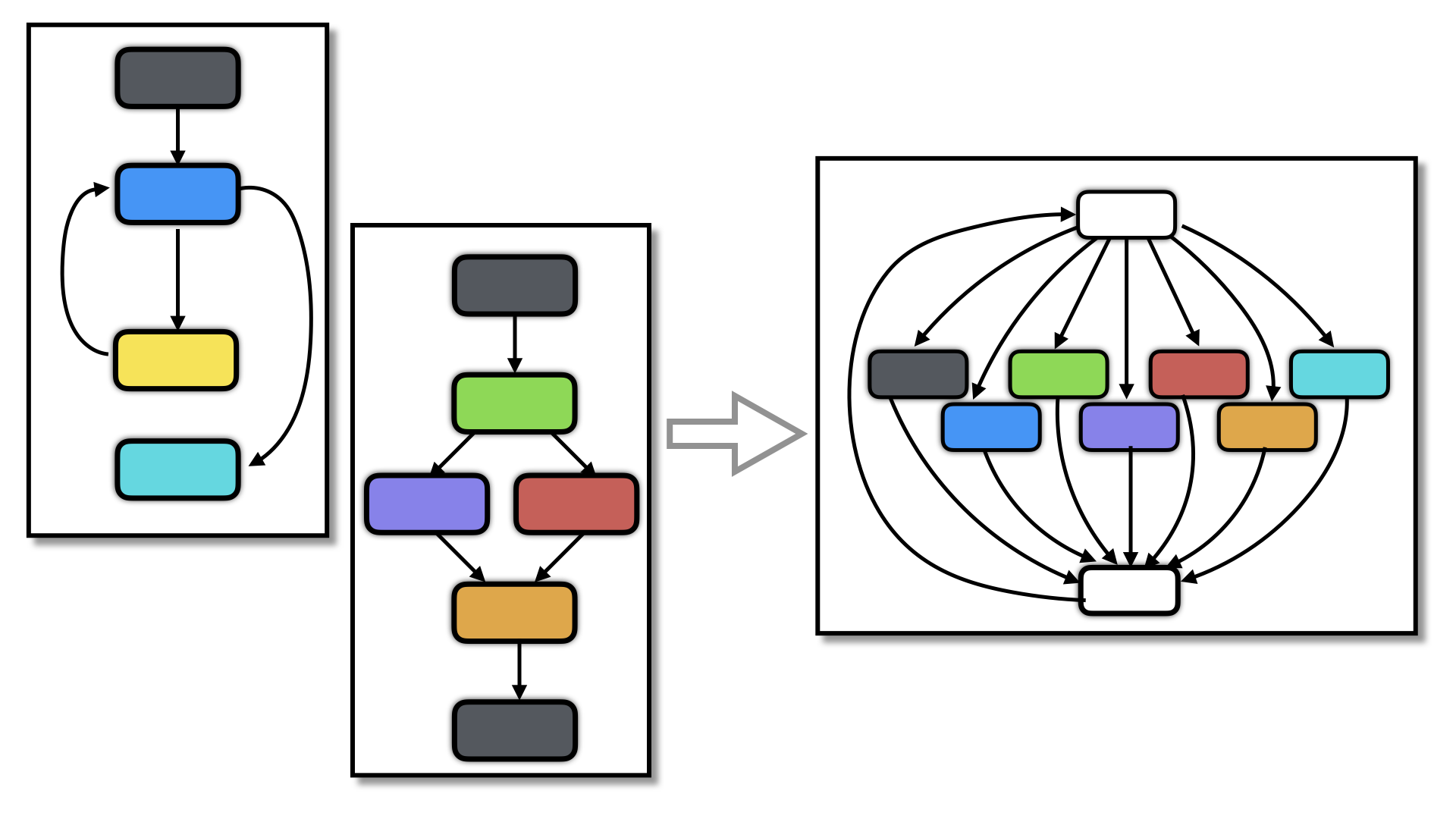

Merge multiple functions into one. An extra formal argument is added
to allow call sites to call any of the functions.
This transformation is useful as a precursor to virtualization or jitting:
if you want to virtualize both foo and bar,
first merge them together, then virtualize the result.
The transformation merges the argument list and the local variables of the functions, thereby tying them together.
Merging relies on the Flatten transformation, and has the same sources of diversity as it.
There are several ways to merge. In a simple merge, the function bodies
are simply put in an if-nest. This is simplistic, of course, but sufficient
if you are going to, say, virtualize or jit the merged function. If you set
--MergeFlatten=true then constituent functions are first
flattened, then the resulting blocks are merged together, and finally
a dispatch method is added (switch, goto, or indirect, selected by
--MergeFlattenDispatch).
The merged function is named
prefix ^ fun1 ^ "_" ^ fun2 ^ "_" ^ ...
where ^ is concatenation.
It is a good idea to run a --Trandform=RndArgs transformation after
this one to hide the obvious extra argument that's been added to
the function.
| Option | Arguments | Description |
|---|---|---|
| --Transform | Merge | Merge of two or more functions. Two different types of merge are supported: simple merge (if () function1 else if () function2 else ...) and flatten merge, where the functions are first flattened, and then the resulting blocks are woven together. This transformation modifies the signature of the function (an extra formal selector argument is added that selects between the constituent functions at runtime), and this cannot be done for functions whose address is taken. --Functions=\* merges together all functions in the program whose signatures can be changed, --Functions=%50 merges together about half of them, etc. It is a good idea to follow this transform by a RndArgs transform to hide the extra selector argument. |
| --MergeName | string | If set, the merged function will be named prefix_name, otherwise it will be named prefix_originalName1_originalName2. Note that it's unpredictable which function will be the first and the second, so it's better to set the merged named explicitly. |
| --MergeObfuscateSelect | BOOLSPEC | Whether the extra parameter passed to the merged function should be obfuscated with opaque expressions or not. Default=false. |
| --MergeOpaqueStructs | list, array, * | Type of opaque predicate to use. Traditionally, for this transformation, array is used. Default=array.
|
| --MergeFlatten | BOOLSPEC | Whether to flatten before merging or not. Default=true. |
| --MergeFlattenDispatch | switch, goto, indirect, ? | Dispatch method used for flattened merge. Default=switch.
|
| --MergeSplitBasicBlocks | BOOLSPEC | If true, then basic blocks (sequences of assignment and call statements without intervening branches) will be split up into indiviual blocks prior to merging. Default=false. |
| --MergeRandomizeBlocks | BOOLSPEC | If true, then basic block sequences will be randomized. Default=false. |
| --MergeConditionalKinds | branch, compute, flag | If merging before flattening, this option describes ways to transform conditional branches. Default=branch.
|
comp-goto-1.c torture test:
goto *(base_addr + insn.f1.offset);
--Transform=Merge --MergeFlatten=true.
--MergeConditionalKinds=flag option seems to have
multiple issues on MacOS/clang. Presumably this is due to some compiler
problem related to inline assembly.